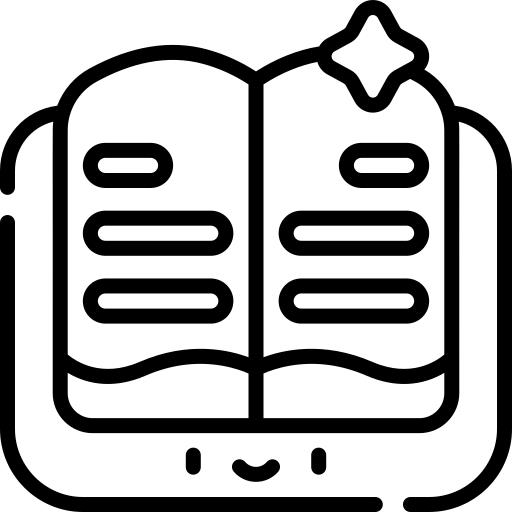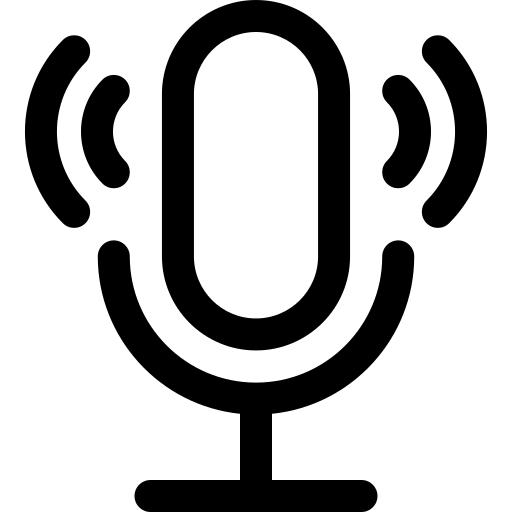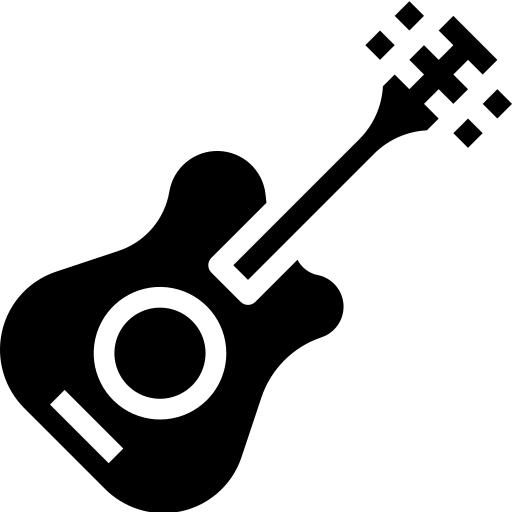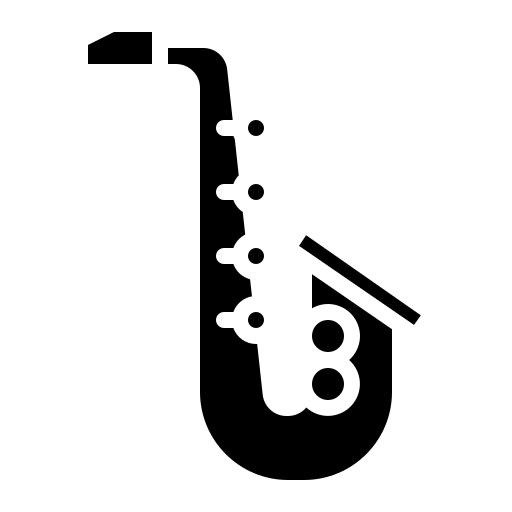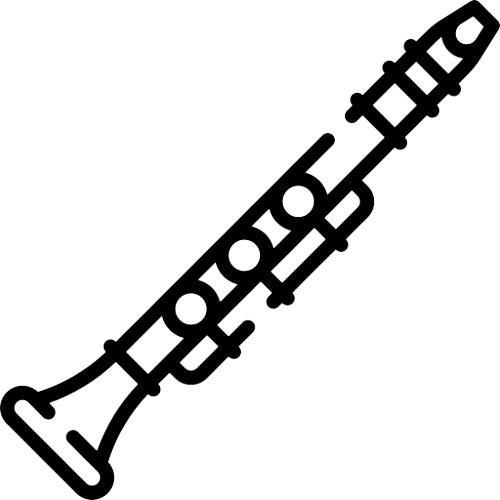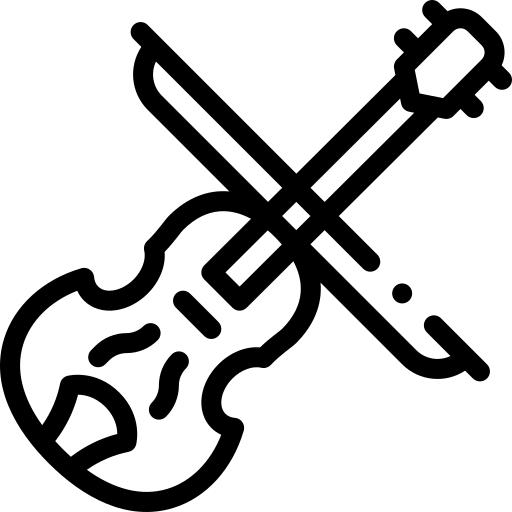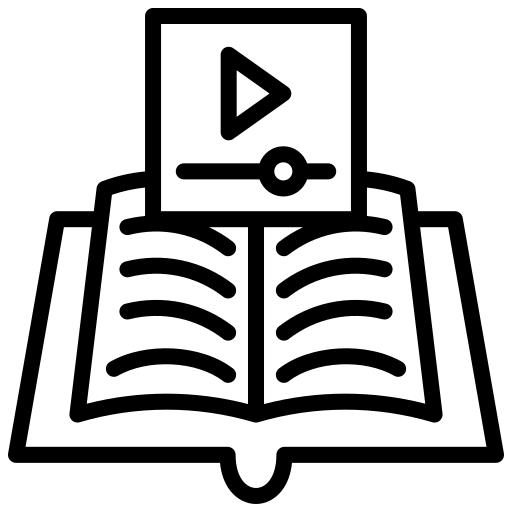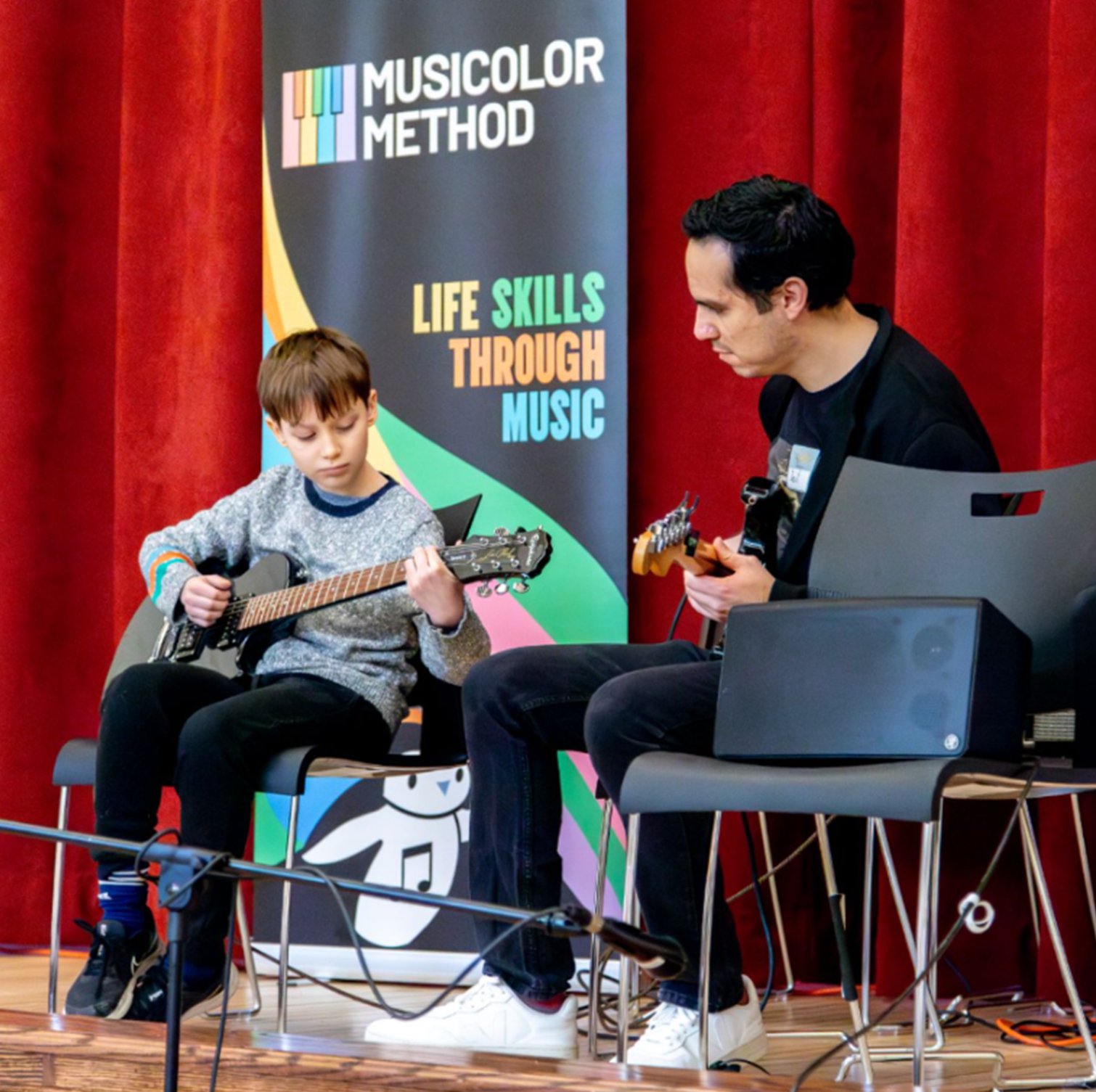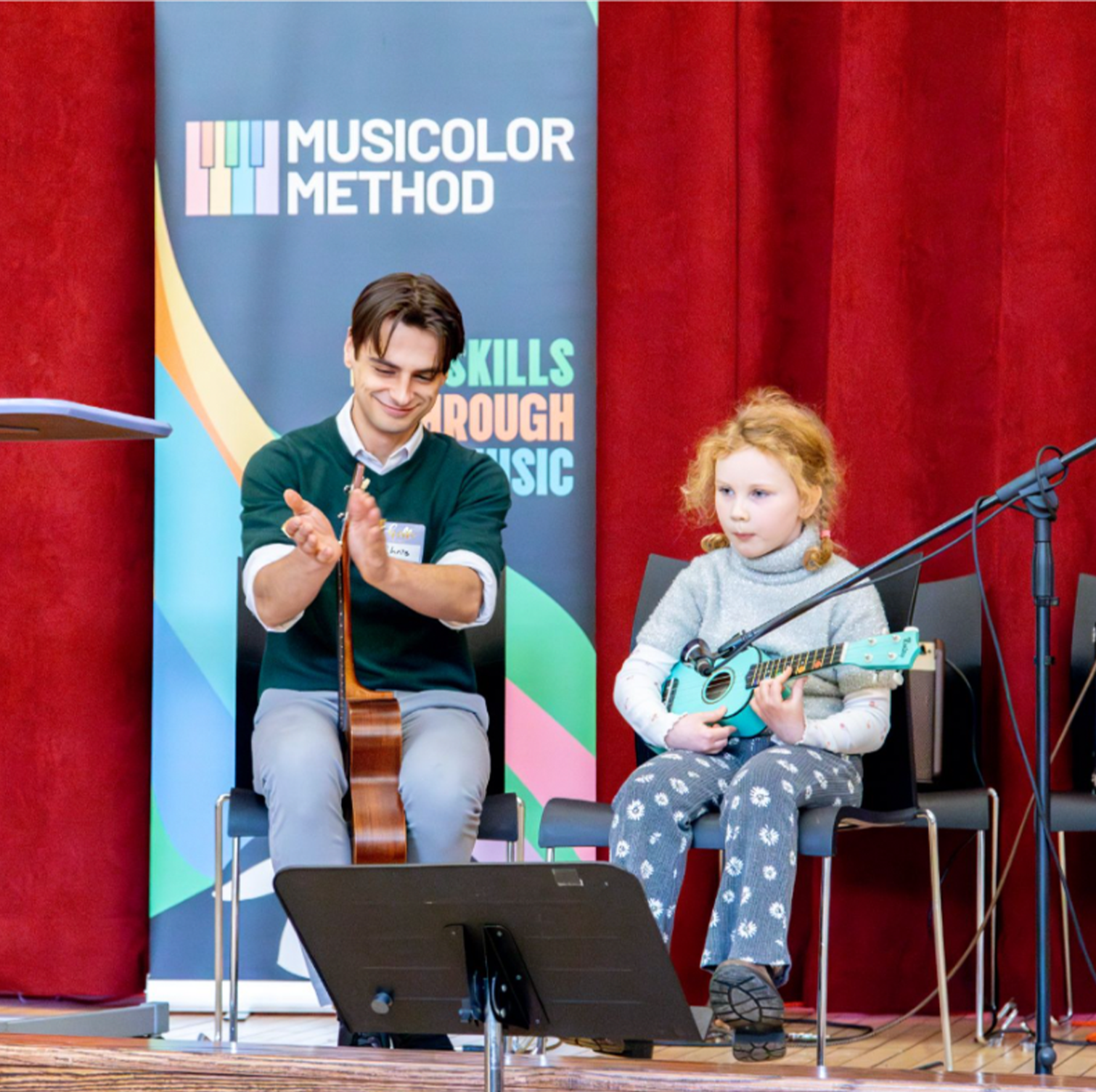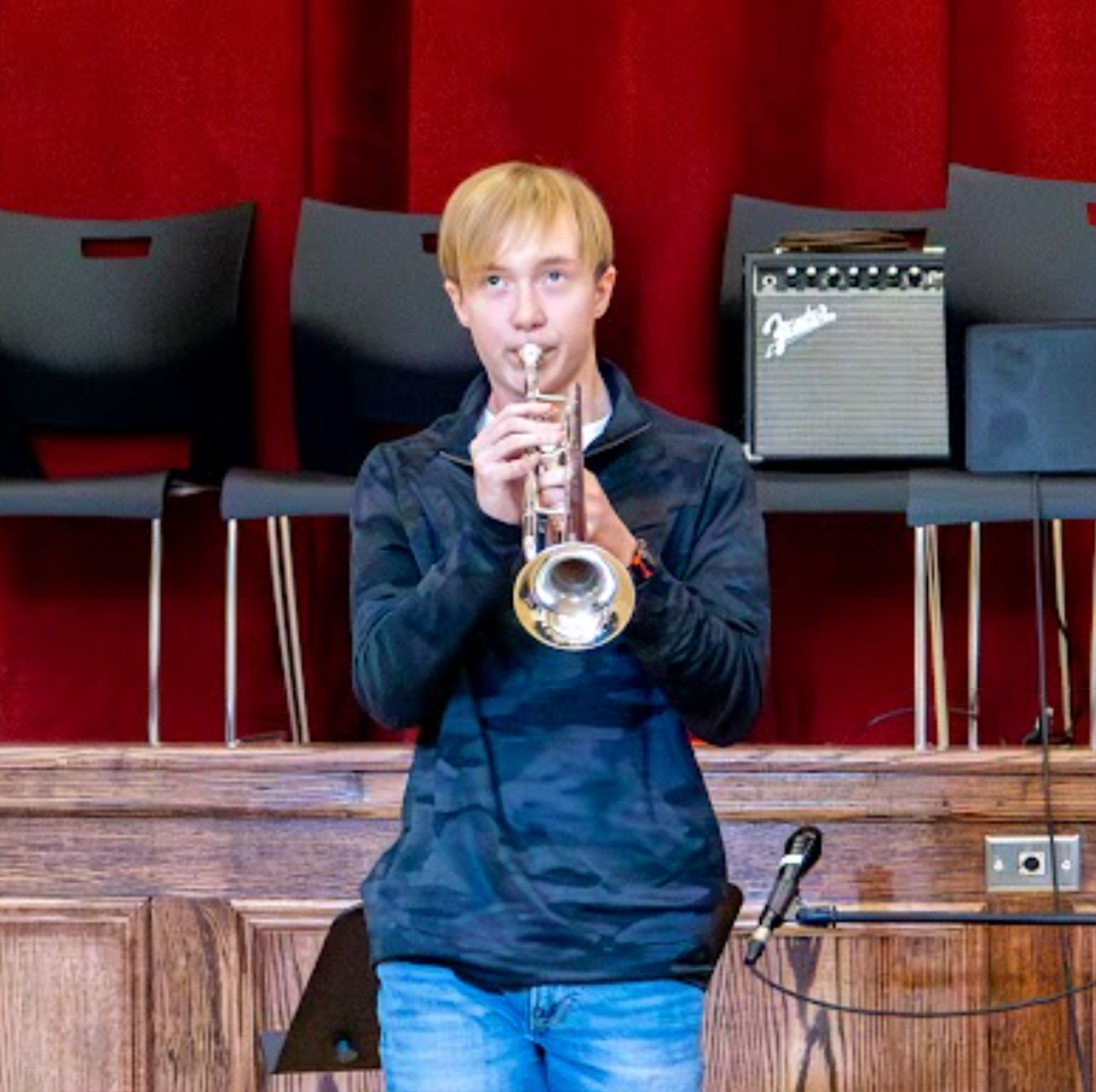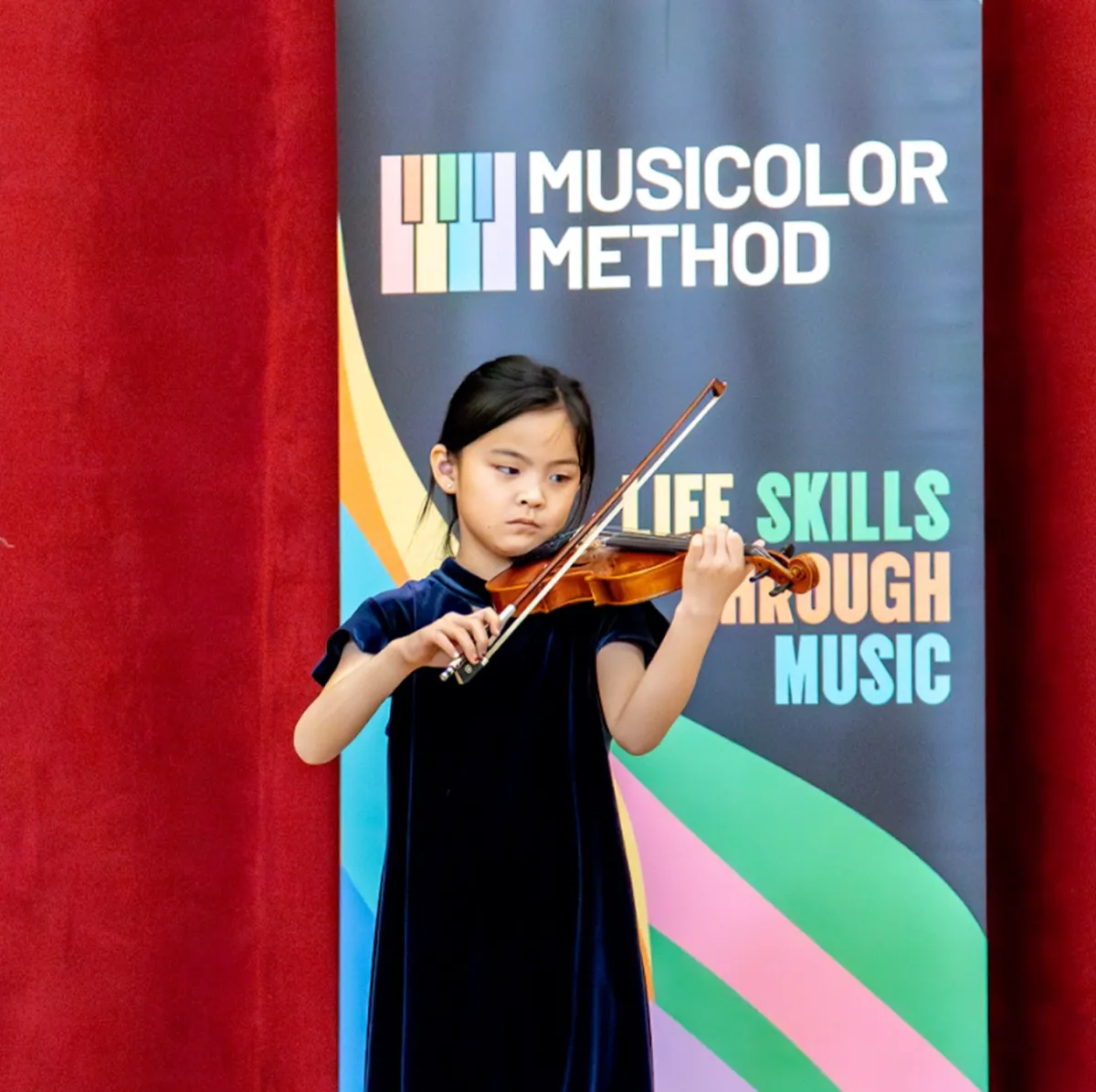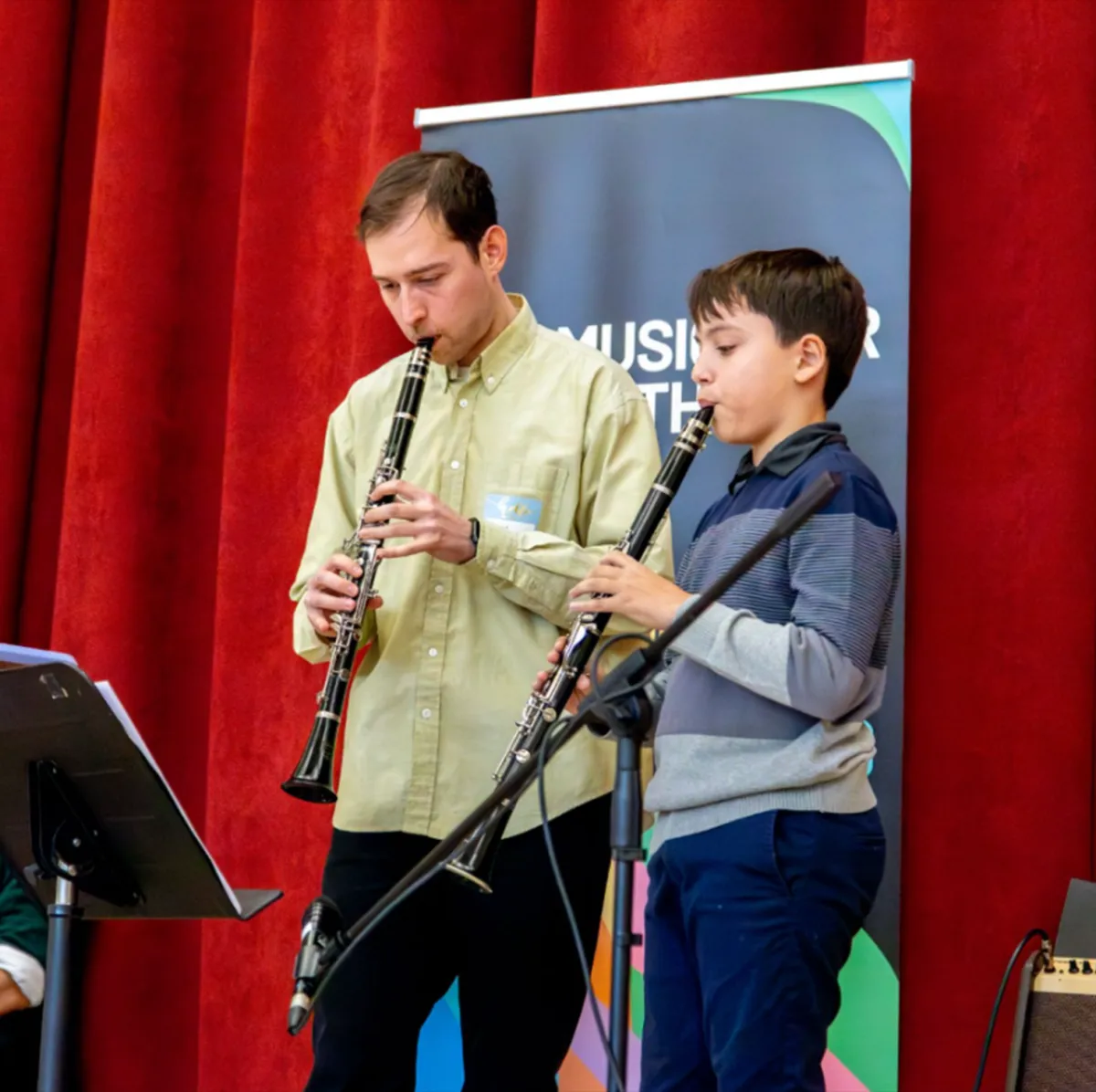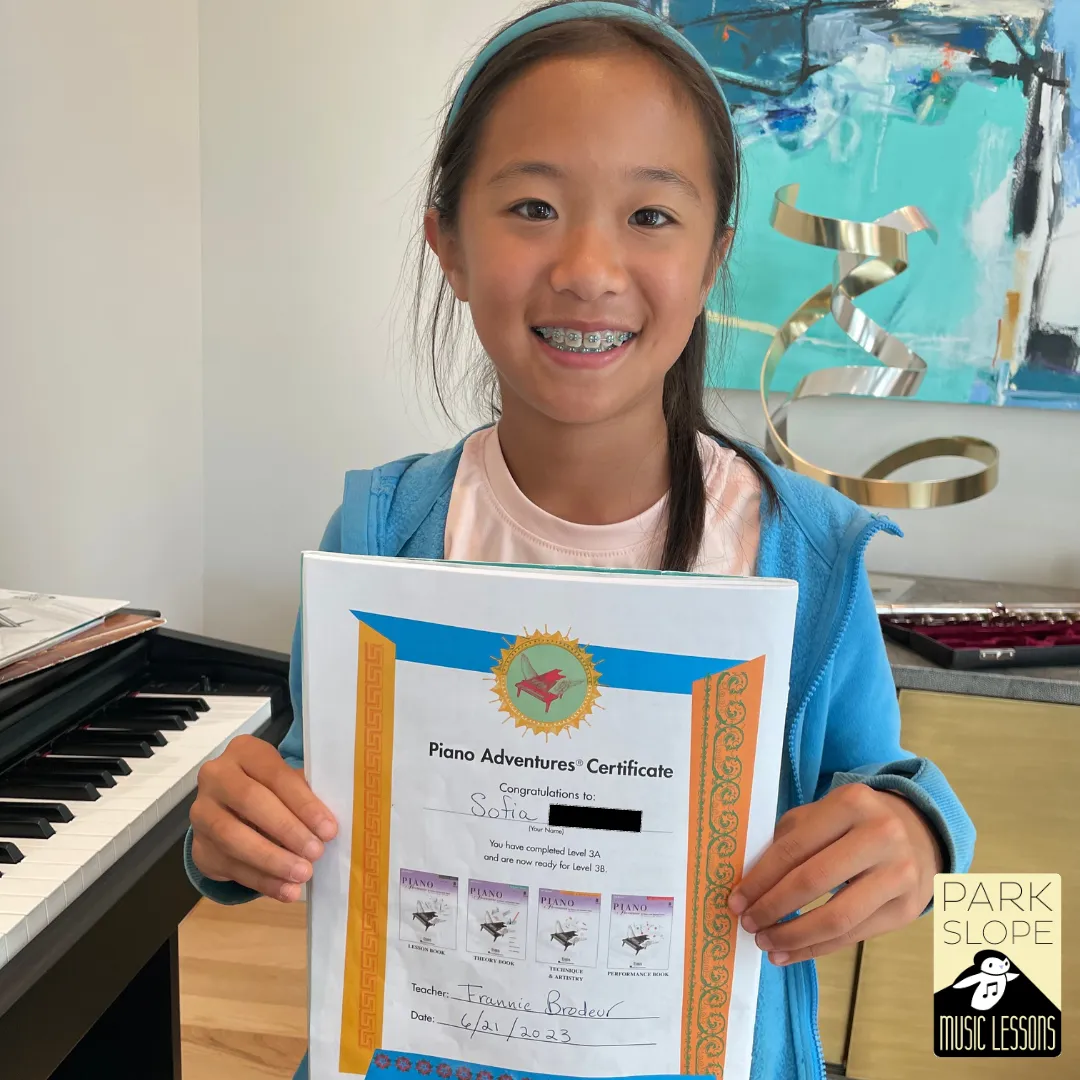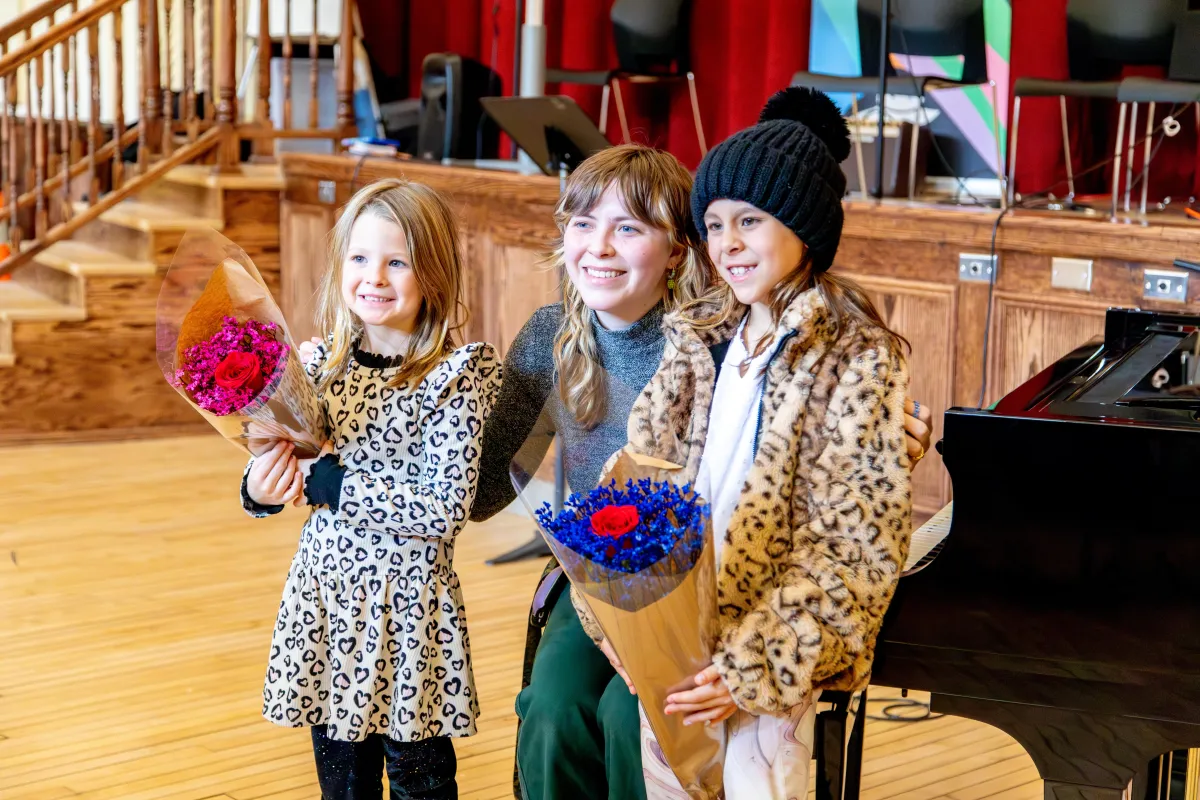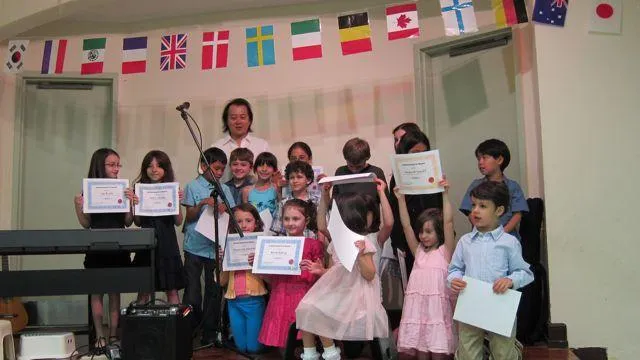IN-HOME MUSIC LESSONS IN NYC/MUSICOLOR METHOD- GLOBAL
Welcome to Music Lessons That Build Confidence First
We help children play music before they’re asked to read or perform—so learning feels natural, calm, and fun.
At Musicolor Method NYC, our teachers bring joy through in-home music lessons that make learning feel natural and fun - all while building confidence one colorful note at a time!
A Personal Welcome from Our Founder
I started Musicolor because I saw too many children lose confidence before they ever had a chance to succeed.
Why Musicolor Works for Young Children
Beginner-Friendly Music Lessons in NYC – From the School That Started It All
Children don’t learn best under pressure.
They learn best when they feel safe, successful, and supported.
Our approach is designed to build confidence first—so skills develop naturally over time.
Formerly known as Park Slope Music Lessons, our Brooklyn-based school is the original birthplace of the Musicolor Method® — a revolutionary way to teach music that’s joyful, intuitive, and child-centered.
Founded in 2007 by educator and author Andrew Ingkavet, our program has grown from a local neighborhood studio into a thriving community of 20 passionate teachers providing expert private music lessons in NYC.
Over the past 18+ years, we’ve helped thousands of students from all backgrounds build confidence, creativity, and lifelong joy through beginner music lessons and personalized musical guidance.
Whether you’re searching for fun, effective music lessons in NYC for your child or a holistic, in-home program tailored to beginners, our experienced teachers make learning music accessible, engaging, and rewarding.
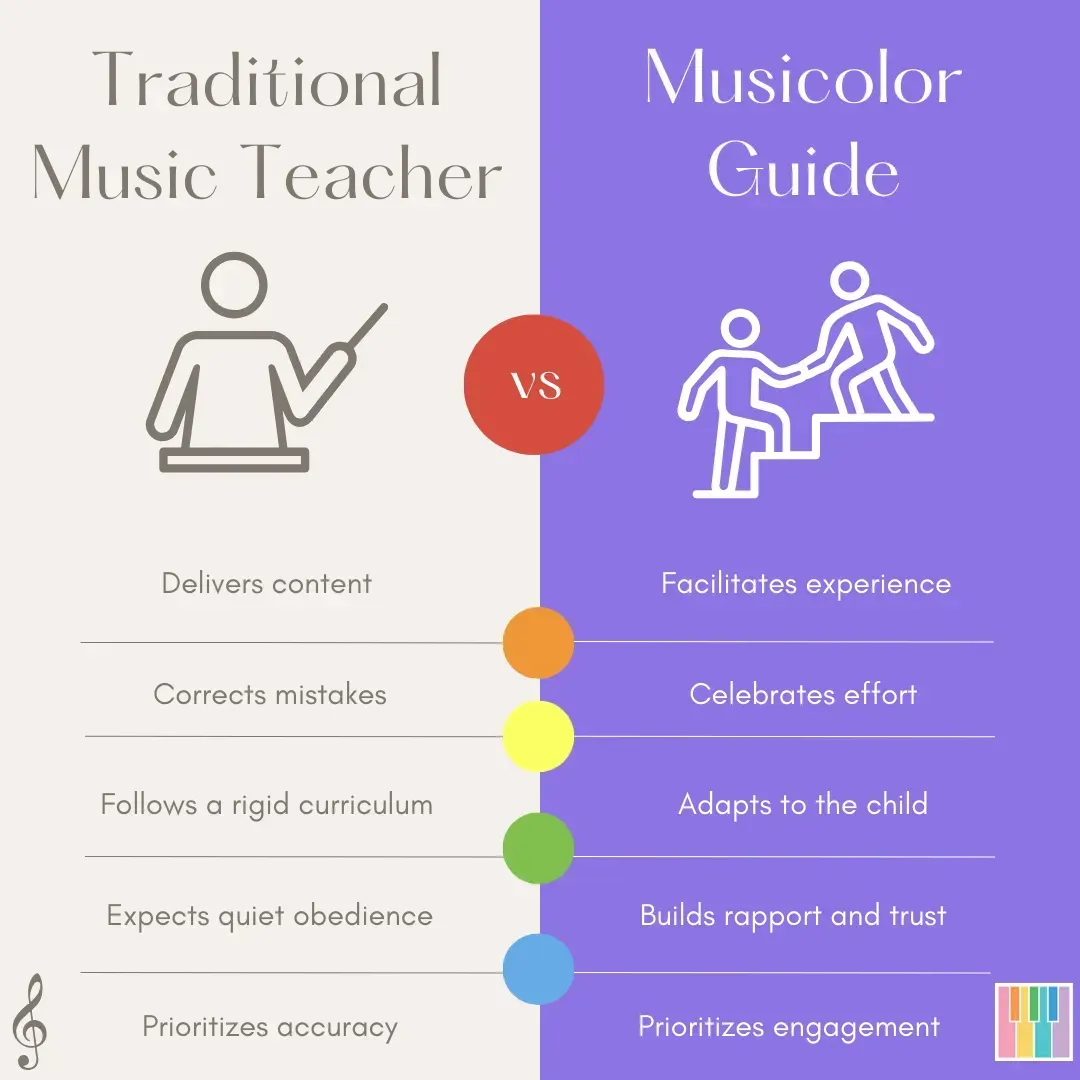
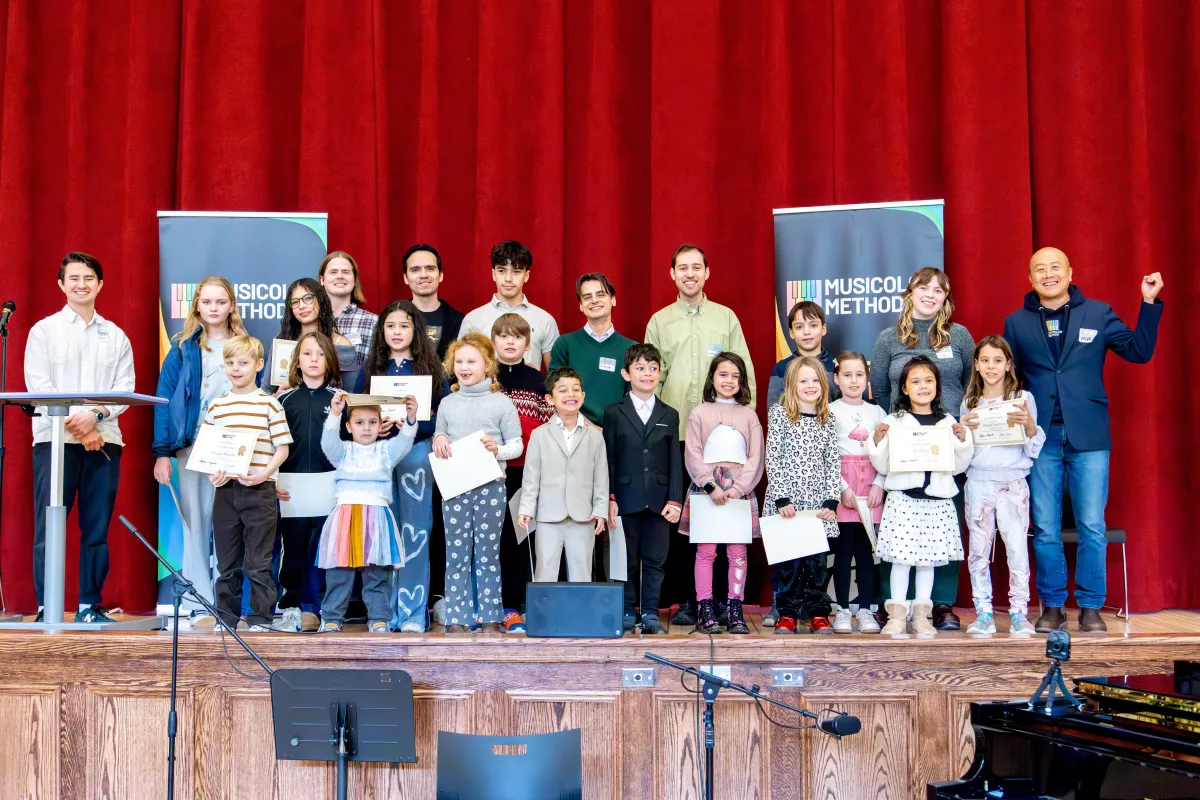
Made for Tiny Hands, Big Imagination
Through the Musicolor Method, we merge playful melodies with pivotal life skills ensuring your child looks forward to every lesson. Perfect for beginner music lessons and young learners starting their musical journey.
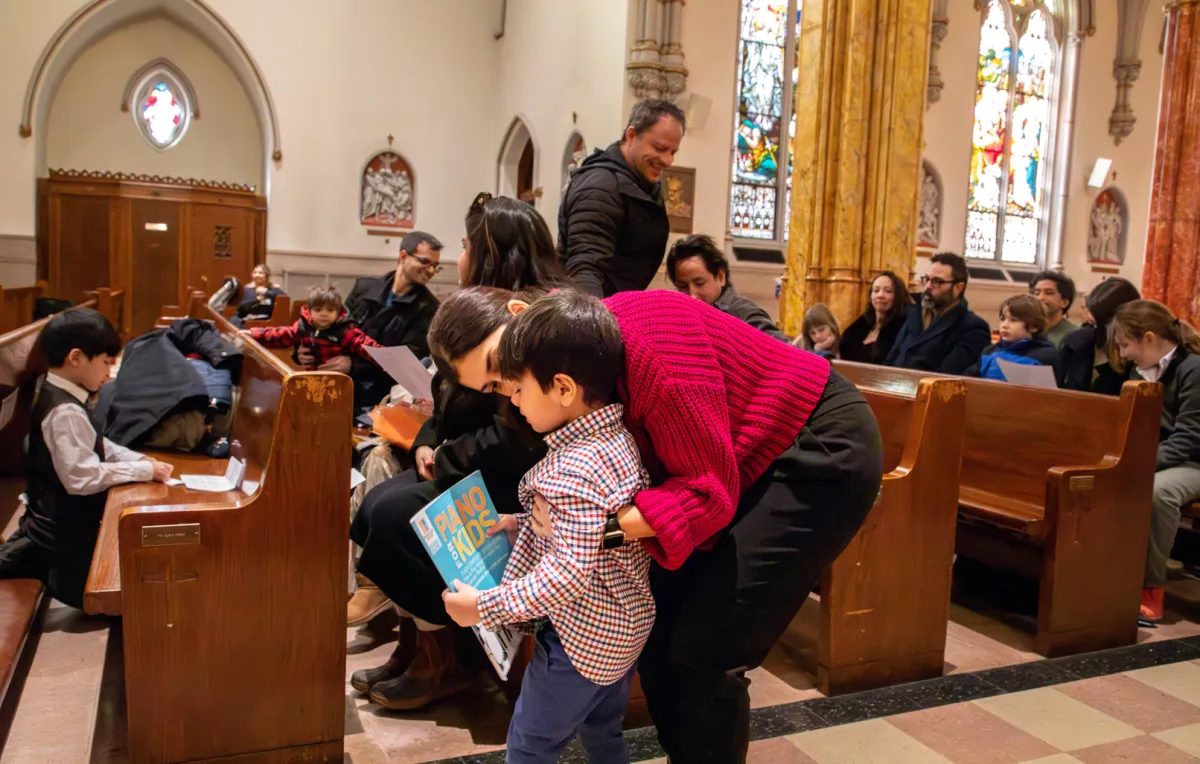
Safe, Comfortable Learning Environment
Lessons in the familiar surroundings of home mean a relaxed child, optimal for absorbing both music and life skills. Ideal for families seeking private music lessons in NYC that offer convenience and comfort.
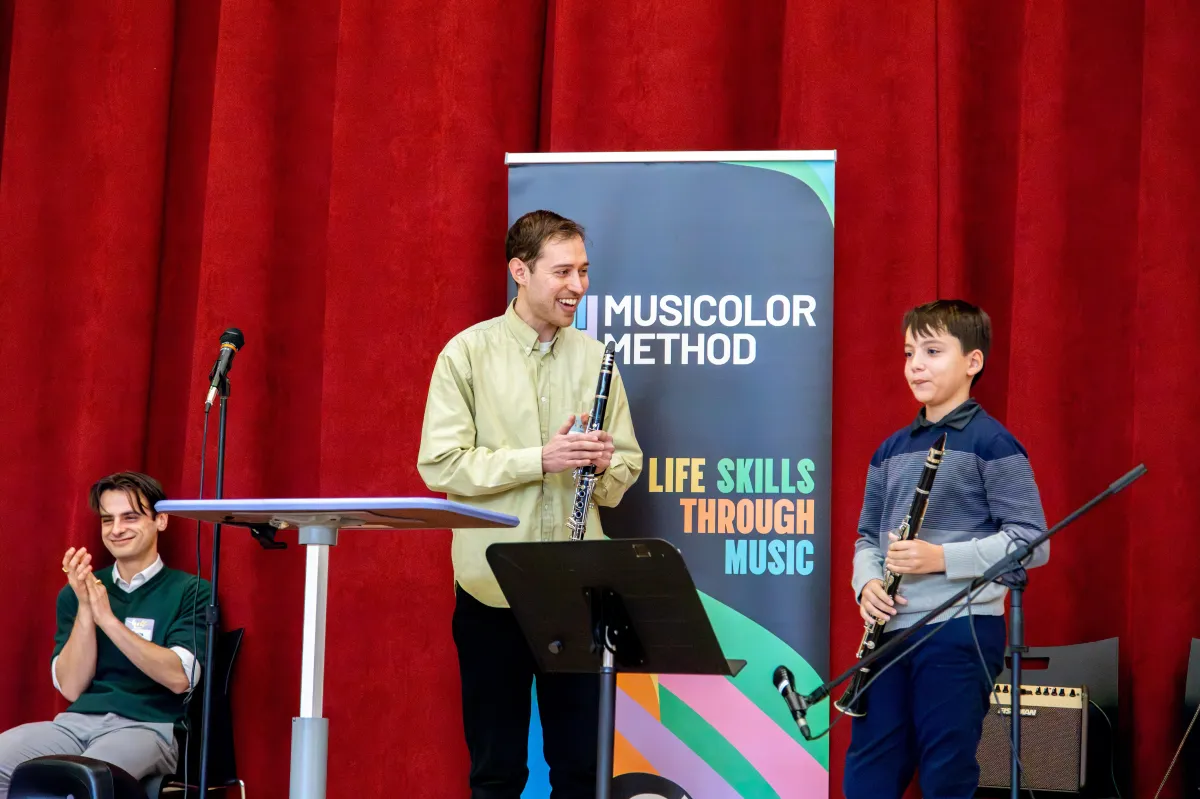
Routine Reinvention in Their Space
Inculcating values of discipline and routine becomes more effective in a familiar setting, turning daily home routines into learning experiences. A key feature of our in-home music lessons for young students.
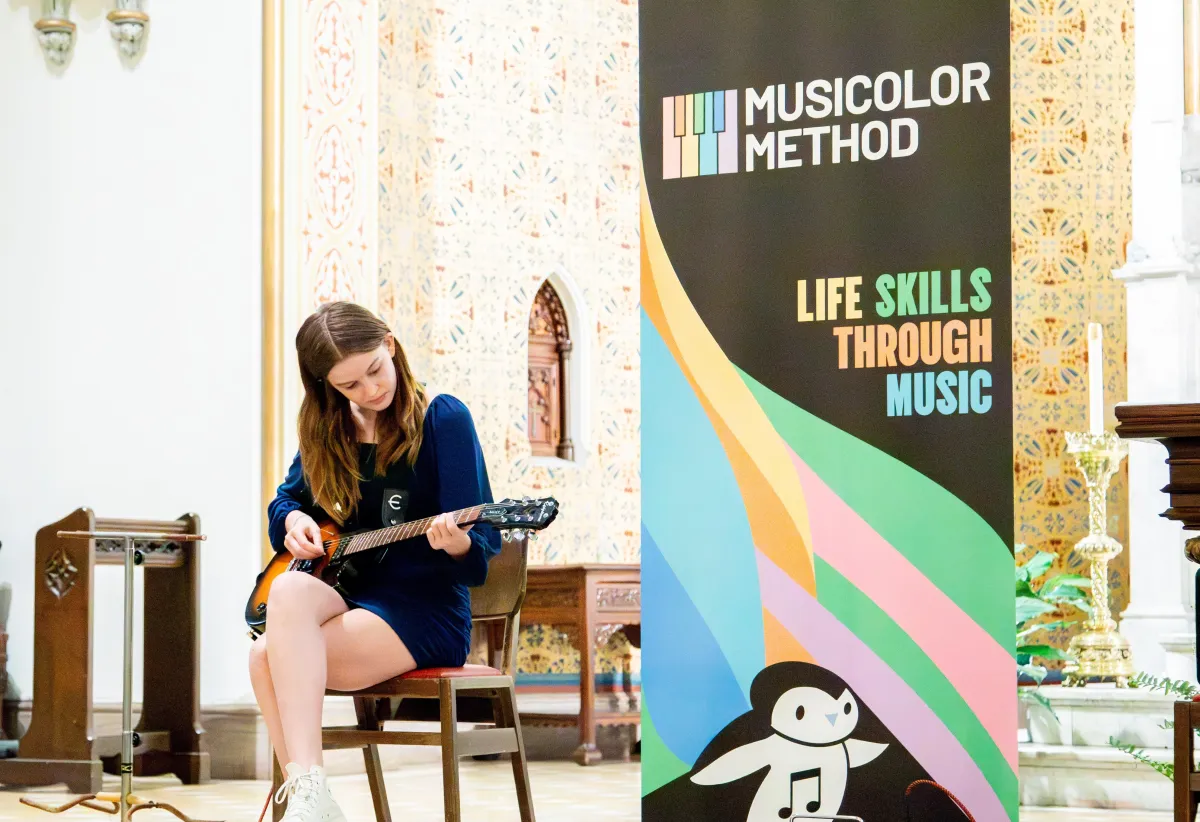
From Living Room to World
Stage
Early introduction to music fosters confidence, helping them express, communicate, and shine even beyond the piano. Great for building skills through music lessons in NYC that prepare kids for future success.
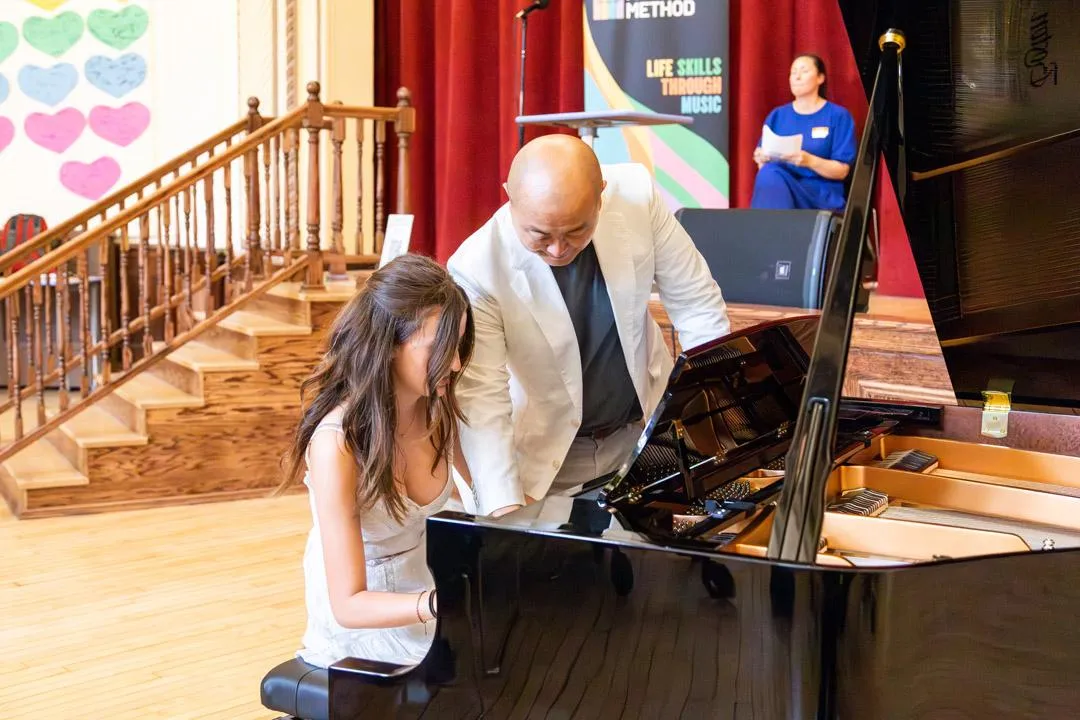
A Love for Learning Starts
Young
By making lessons a joyous home event, we inspire a lifelong curiosity and love for learning. This approach makes our program stand out among beginner music lessons and nurturing music education.
MUSIC LESSONS FOR ADHD, ASD & OTHER SPECIAL NEEDS
Many neurodivergent children thrive when learning starts with experience and confidence instead of pressure and correction.
Our specialized music lessons are designed to support learners with ADHD, Autism, and other special needs. In a safe and encouraging environment, we use music to improve focus, communication, and emotional expression while boosting confidence and creativity. Whether it’s learning an instrument, singing, or exploring sounds, each lesson is tailored to individual strengths and abilities—making music both fun and therapeutic.
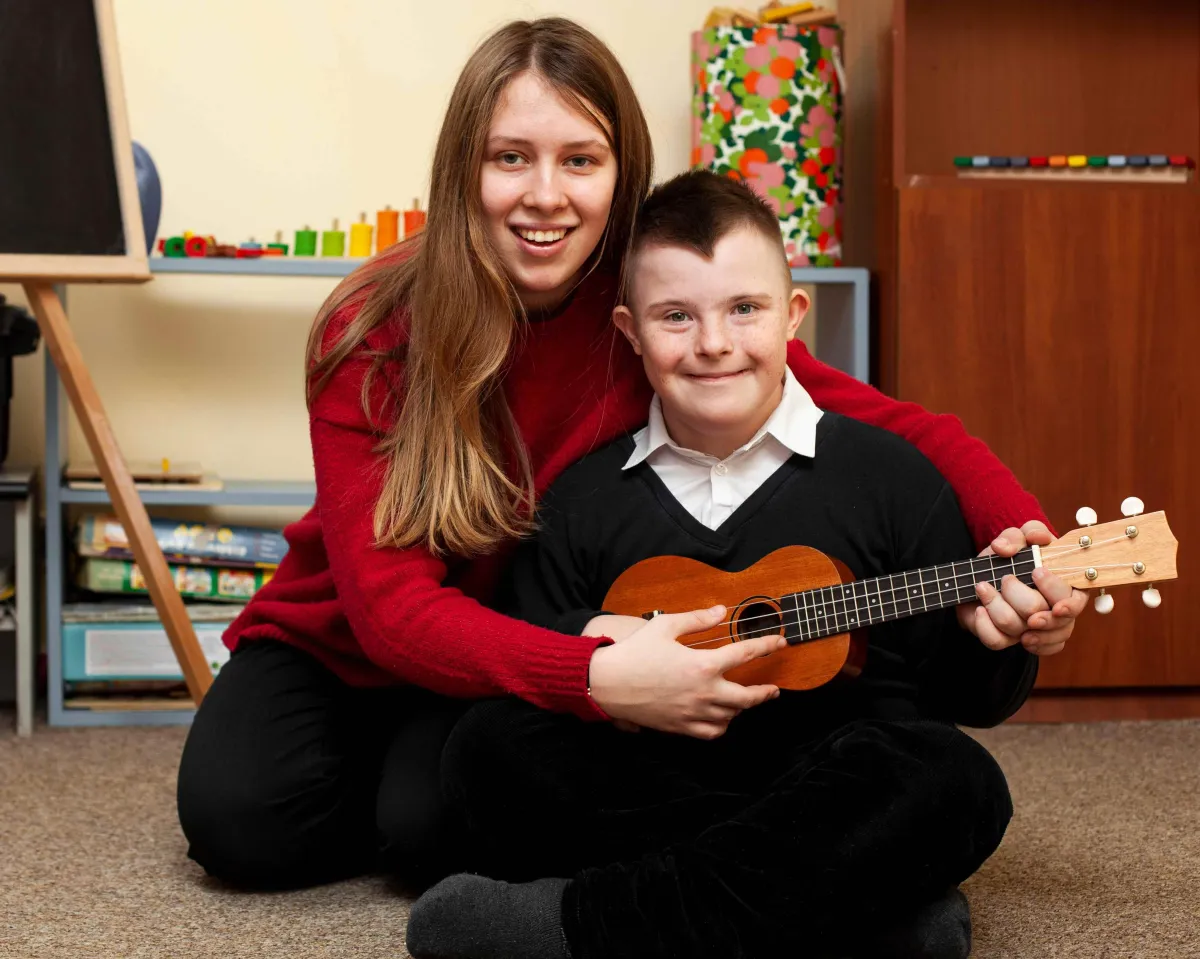
Our Programs
Every program is designed to meet your child where they are—without rushing or overwhelm.
Penguin Pals™: A Gentle, Playful Introduction to Music
Designed for ages 2–5, where curiosity comes first and structure grows naturally.
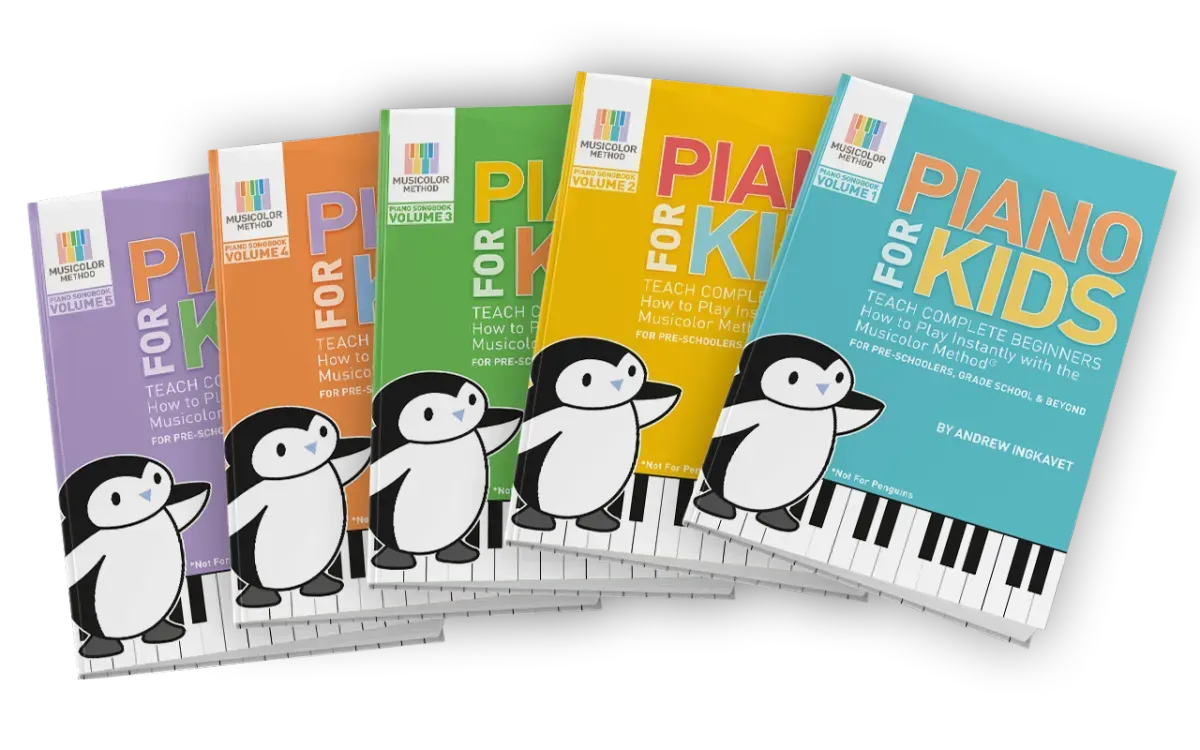
The Musicolor Method:
Perfectly tuned for ages 4+, right at home
MUSICOLOR EARLY FOUNDATIONS
Unlock your child’s musical magic – right from home, anywhere in NYC!
Meet our New York City Team
Our teachers are more than just instructors—they are mentors, heroes, and role models. Each member of our team has undergone a rigorous vetting and training process. This includes background checks and official certification through our exclusive Musicolor Method NYC Masterclass. All of our teachers hold at least a bachelor's degree, with many having earned advanced degrees from prestigious institutions such as Berklee College of Music, Juilliard, NYU, Harvard, Boston College, New England Conservatory, and more.
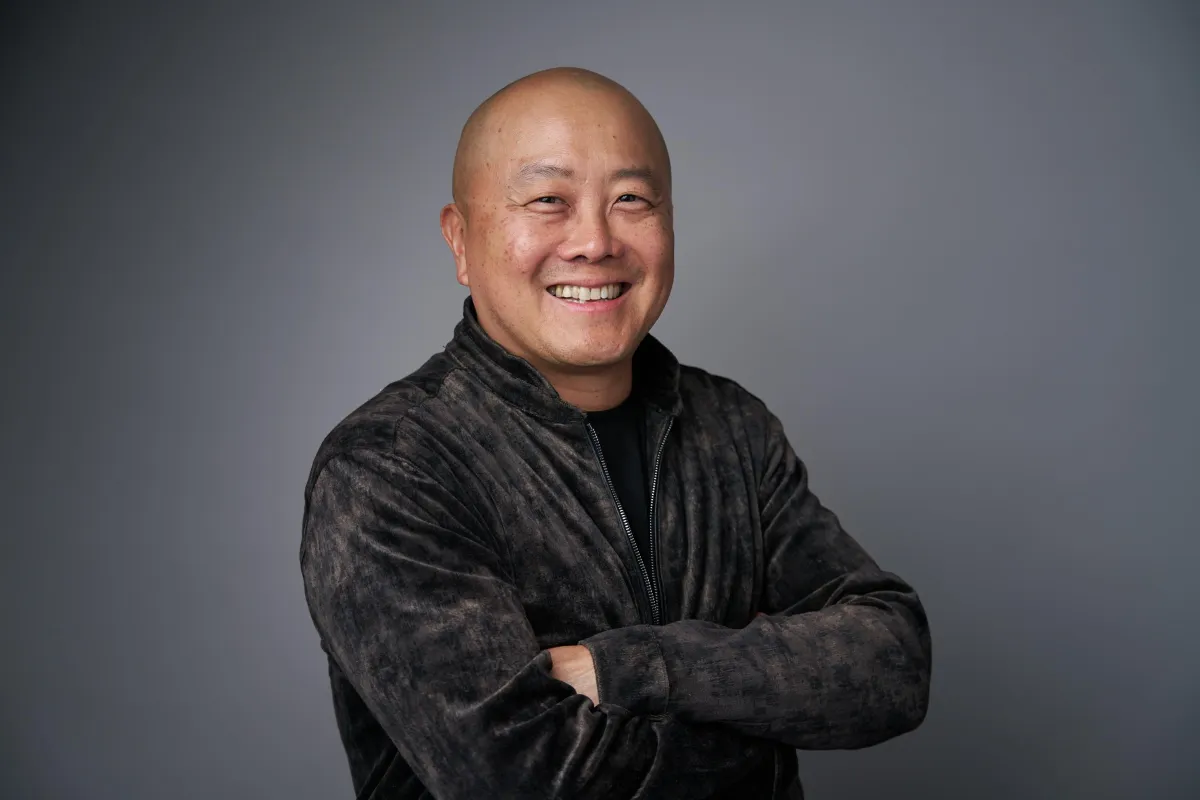
Andrew Ingkavet
Founder & CEO
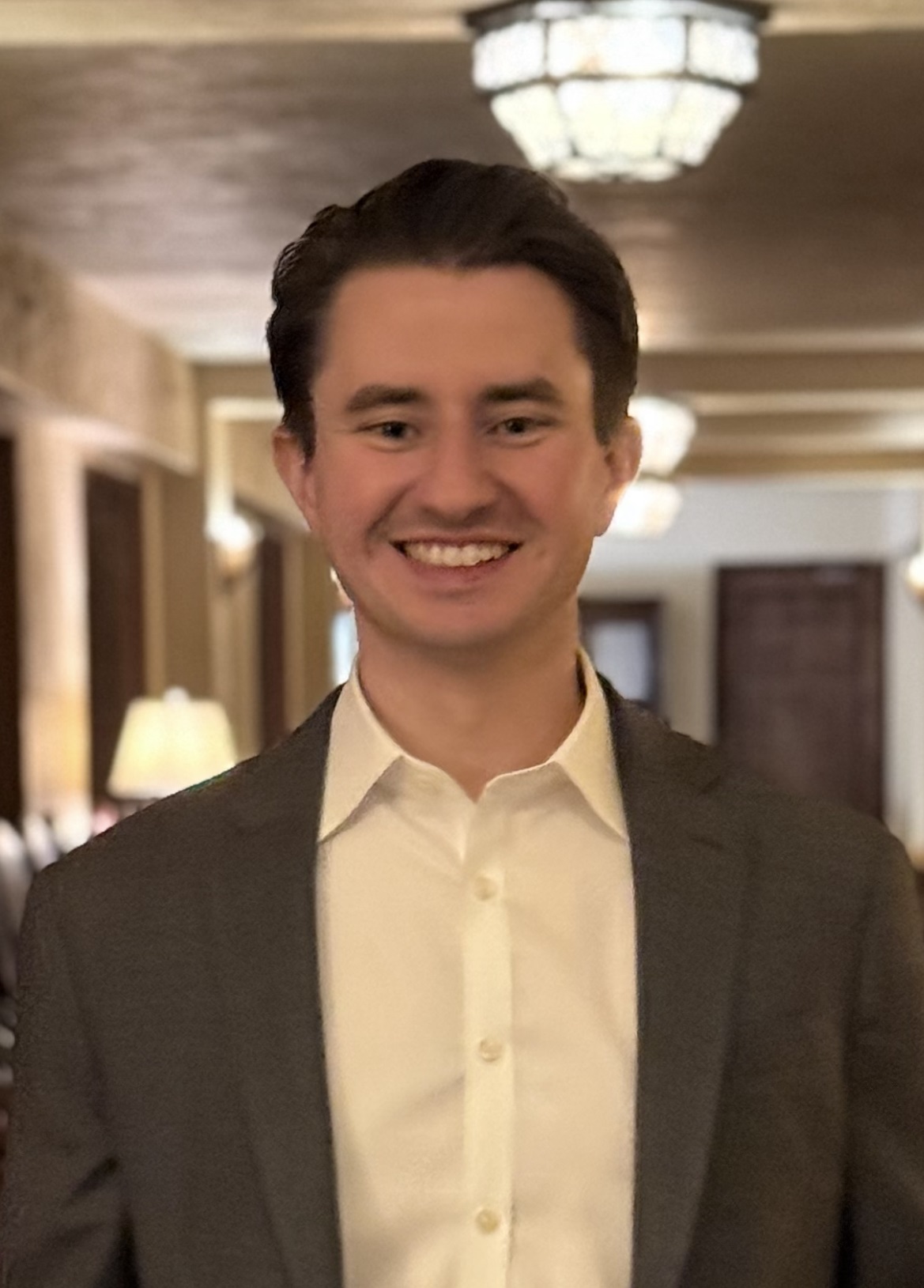
Daniel Moss
General Manager
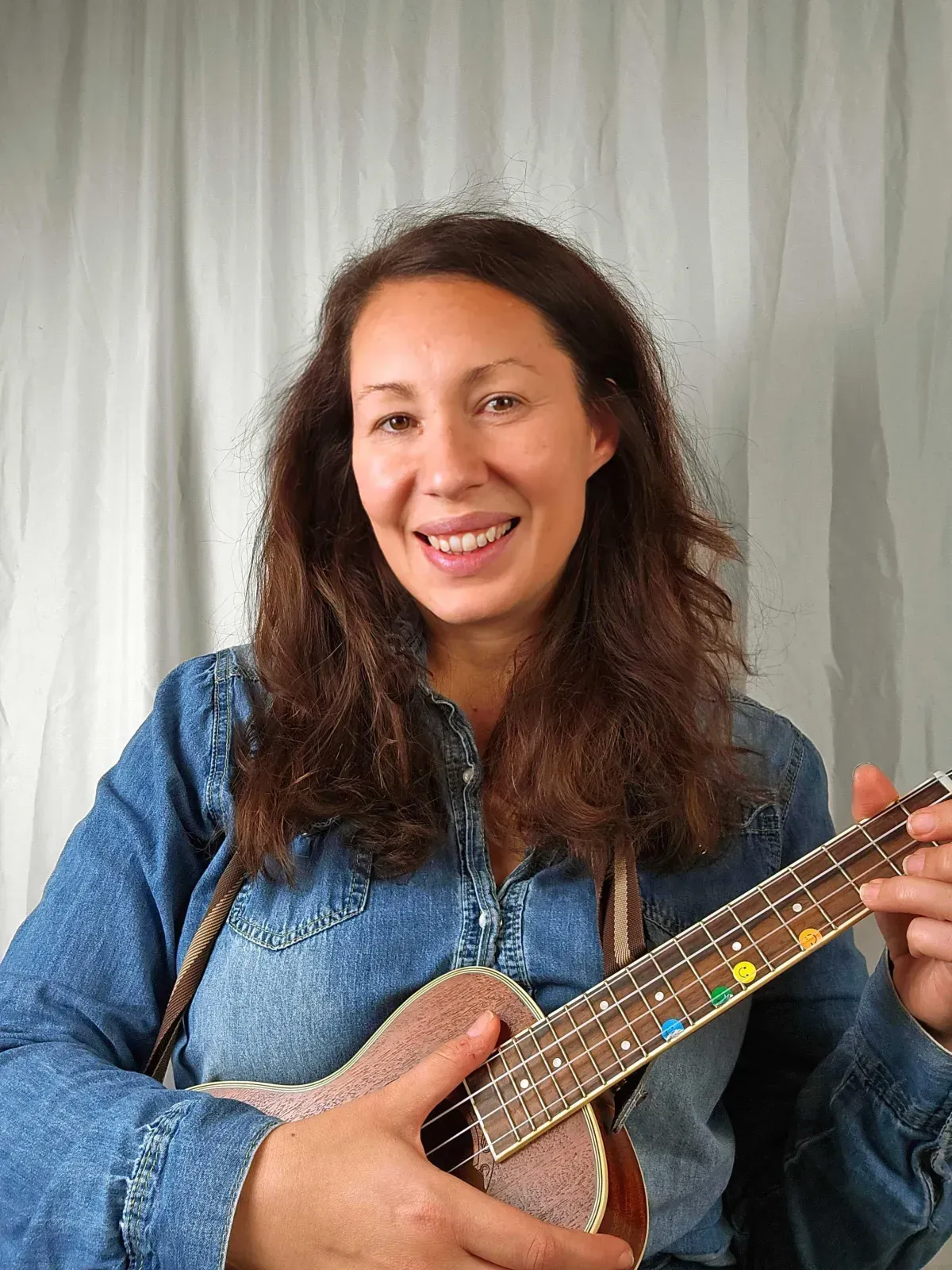
Laura Wilson
Parent Coordinator
Musicolor Method NYC Scholarship Program
At Musicolor Method NYC, we believe every child deserves the opportunity to experience the joy and benefits of music education. Beyond learning notes and rhythms, our approach nurtures confidence, focus, creativity, and resilience—skills that last a lifetime.
To make music education accessible to all, we offer need-based scholarships for music lessons in NYC through our growing fund, supported by community donations, events, and merchandise sales. These music scholarships in NYC provide partial tuition assistance (10% to 70%) for families facing financial challenges. If cost has been a barrier, we encourage you to apply—our simple application process ensures support reaches those who need it most.
Our Blogs
Explore music lessons in NYC, with tips, stories, and inspiration to grow your musical skills.
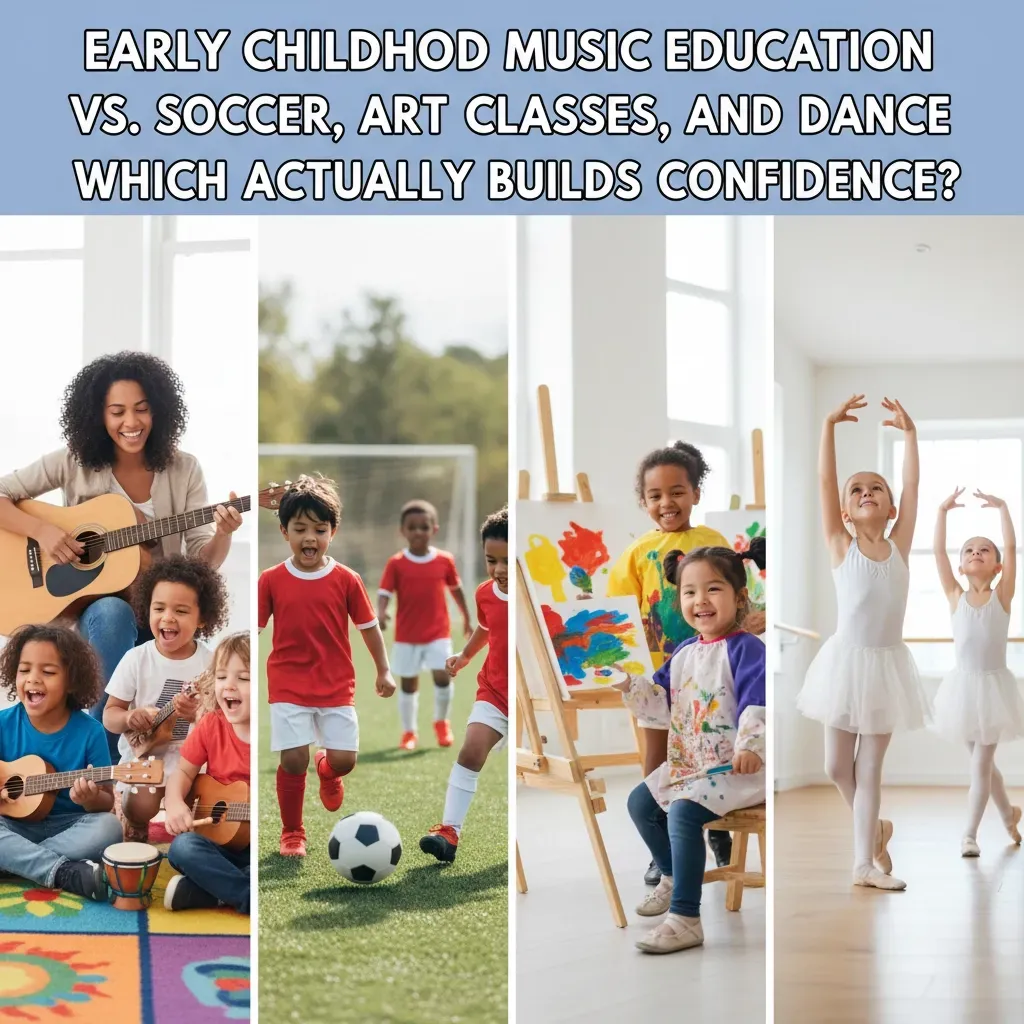
Early Childhood Music Education Vs. Soccer, Art Classes, and Dance: Which Actually Builds Confidence?
Picture this: You're walking down Court Street in Carroll Gardens, passing the soccer fields at Carroll Park, when you overhear another mom talking about her 4-year-old's packed schedule. "Emma has dance on Mondays, art class on Wednesdays, and soccer on Saturdays," she says proudly.
Your heart sinks a little. Is your child falling behind? Are you missing the window for building their confidence? With so many activity options in our neighborhood: from the Little Dancers Studio to Brooklyn Art classes to youth soccer leagues: how do you know which one will actually give your child the confidence boost they need?
Here's the truth that might surprise you: while soccer, art classes, and dance all have their merits,early childhood music education stands out as the most powerful confidence-builder for young children. And the science backs this up in ways that will make you rethink everything you thought you knew about childhood activities.
Why Confidence Matters More Than You Think
Before we dive into the comparison, let's talk about why this matters. Confidence isn't just about feeling good: it's the foundation for everything your child will do in life. A confident child speaks up in class, tries new things, bounces back from setbacks, and develops the resilience they'll need as they grow.
But here's what many Carroll Gardens parents don't realize:not all confidence is created equalSome activities build surface-level confidence that fades when the activity ends, while others create deep, lasting self-assurance that carries into every area of life.

The Soccer Approach: Physical Confidence
Let's start with soccer: probably the most popular choice among Carroll Gardens families. The youth leagues at Carroll Park are always bustling, and there's something undeniably appealing about watching your little one kick a ball around with friends.
Soccer builds confidence through physical mastery and team achievement. When your child scores their first goal or makes a great pass, they get an instant confidence boost. The competitive nature teaches resilience, and the team environment builds social skills.
But here's the catch: soccer confidence is often tied to external validation and comparison with others. Your child feels great when they win, but what happens when they lose? What about the naturally less athletic kids who spend most games on the sidelines?
The Art Class Route: Creative Confidence
Art classes offer a completely different approach. At places like the Brooklyn Art Library or local studios, children build confidence through self-expression and personal creativity. There's no "right" way to make art, which can be incredibly freeing for anxious children.
Art builds confidence by giving kids a safe space to express emotions and ideas they might not have words for yet. It develops fine motor skills and cognitive abilities while allowing for individual pace and style.
The downside? Art confidence tends to be more internal and may not translate as directly to other areas like academic performance or social situations. While valuable, it's often more limited in scope than parents hope.
The Dance Option: Expressive Confidence
Dance combines physical movement with creative expression, making it appealing to many families. The dance studios along Smith Street offer everything from ballet to hip-hop for toddlers and preschoolers.
Dance builds confidence through performance opportunities and body awareness. Children learn to express themselves through movement while developing coordination and rhythm. The group aspect teaches cooperation and timing.
However, dance confidence is often performance-based and can create anxiety around "looking right" or keeping up with others. For naturally shy children, the performance aspect might feel more intimidating than confidence-building.
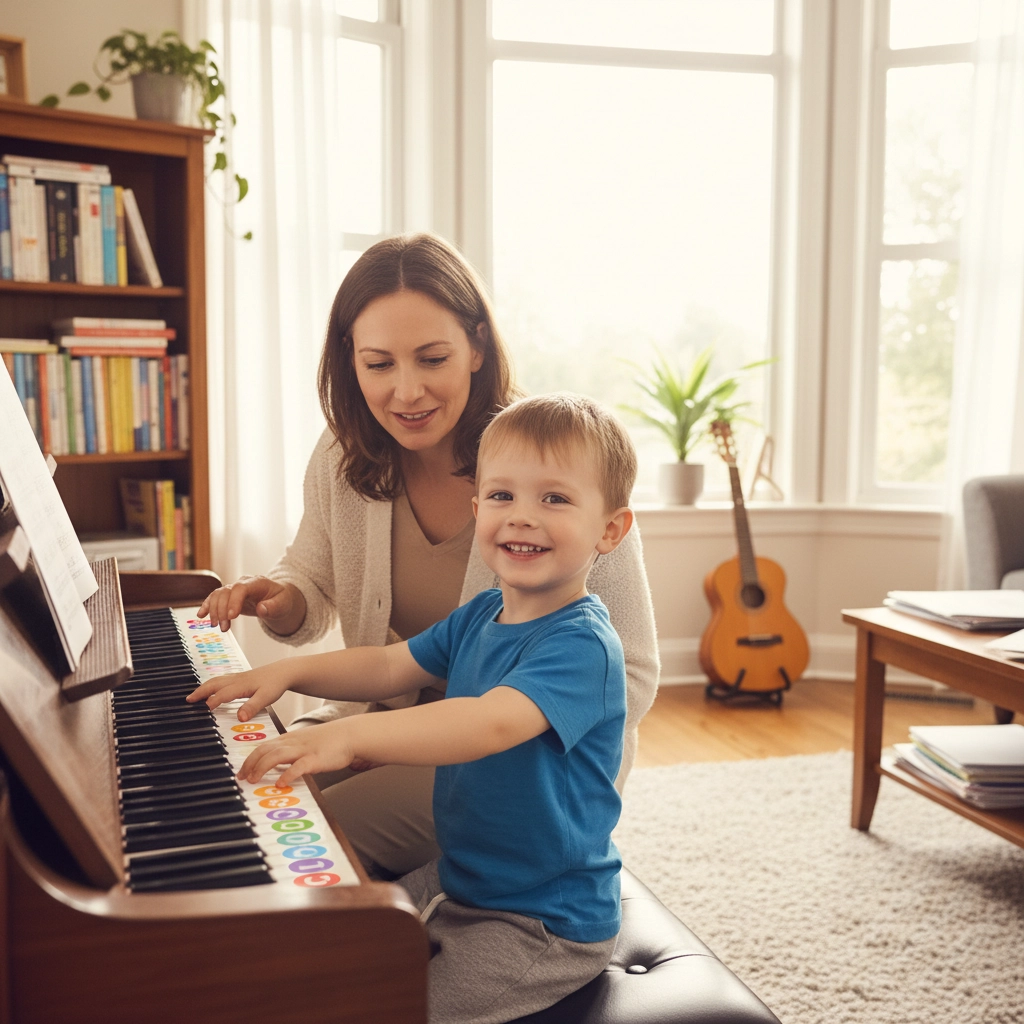
The Music Education Advantage: Multi-Layered Confidence
Now, here's where music education shines: and why neuroscientists are calling it the "ultimate brain workout" for young children.
Unlike other activities that build confidence in one primary area,music education creates confidence on multiple levels simultaneously:
Cognitive Confidence: Learning music literally rewires the brain. Studies show that children who start music lessons early develop stronger connections between brain hemispheres, leading to improved problem-solving skills, better memory, and enhanced language development. This translates to confidence in academic settings that lasts a lifetime.
Emotional Confidence: Music is a direct pathway to emotional processing and regulation. When your 3-year-old learns to play a simple melody, they're also learning to manage their emotions, focus their attention, and express feelings in a healthy way. This emotional intelligence becomes the foundation for social confidence.
Performance Confidence: Unlike sports where only some children get to shine, every child can have a moment in music. Whether it's playing "Twinkle Twinkle Little Star" for grandma or participating in a recital, music offers regular opportunities for achievement and recognition.
Social Confidence: Music teaches children to listen, respond, and collaborate in unique ways. They learn to take turns, follow a conductor, and blend their voice with others: skills that translate directly to classroom and social settings.

The Carroll Gardens Reality Check
Let's be honest about life in Carroll Gardens. We're a neighborhood of high-achieving families who want the best for our children. The pressure is real, and the competition starts early.
But here's what many parents miss: starting music education at age 3 or 4 gives your child advantages that compound over time. While other kids are learning to kick a ball or hold a paintbrush, your child is developing neural pathways that will help them excel in math, reading, languages, and social situations.
Think about it this way: the child who starts piano at 3 isn't just learning piano. They're developing:
Mathematical thinking through rhythm and counting
Reading skills through note recognition
Memory and attention through practice
Confidence through regular small victories
Emotional regulation through musical expression
By kindergarten, these children often outperform their peers not just in music, but across the board.
The Science That Should Convince You
Here's the research that made me a believer: children who receive music education before age 5 show measurably different brain development than those who don't. Their brains develop more connections, stronger memory centers, and better integration between logical and creative thinking.
A landmark study followed children for 10 years and found that those who started music lessons early had higher IQs, better social skills, and greater academic achievement throughout elementary school: even after controlling for family income and parents' education levels.
Most importantly for anxious parents: these children showed significantly lower levels of anxiety and higher self-esteem compared to children in other activities.

Why Waiting Is the Biggest Mistake
Here's the urgency every Carroll Gardens parent needs to understand: the window for maximum benefit is narrowing every day. The brain's plasticity: its ability to form new connections: is at its peak between ages 3 and 6.
Starting soccer at 6 instead of 4? No big deal. Starting art classes at 7 instead of 5? Still beneficial. But starting music education at 7 instead of 3? You've missed the window for the most profound neurological benefits.
This doesn't mean older children can't benefit from music: they absolutely can. But the children who start earliest get advantages that last a lifetime.
The Musicolor Method NYC Difference
At Musicolor NYC, we've developed something special for Carroll Gardens families who understand that early childhood music education isn't just about learning songs: it's about building the foundation for lifelong confidence and success.
Our color-based method makes music accessible and engaging for children as young as 3, turning abstract musical concepts into concrete, visual learning experiences. We come to your home, work with your child's schedule, and focus on building confidence from the very first lesson.
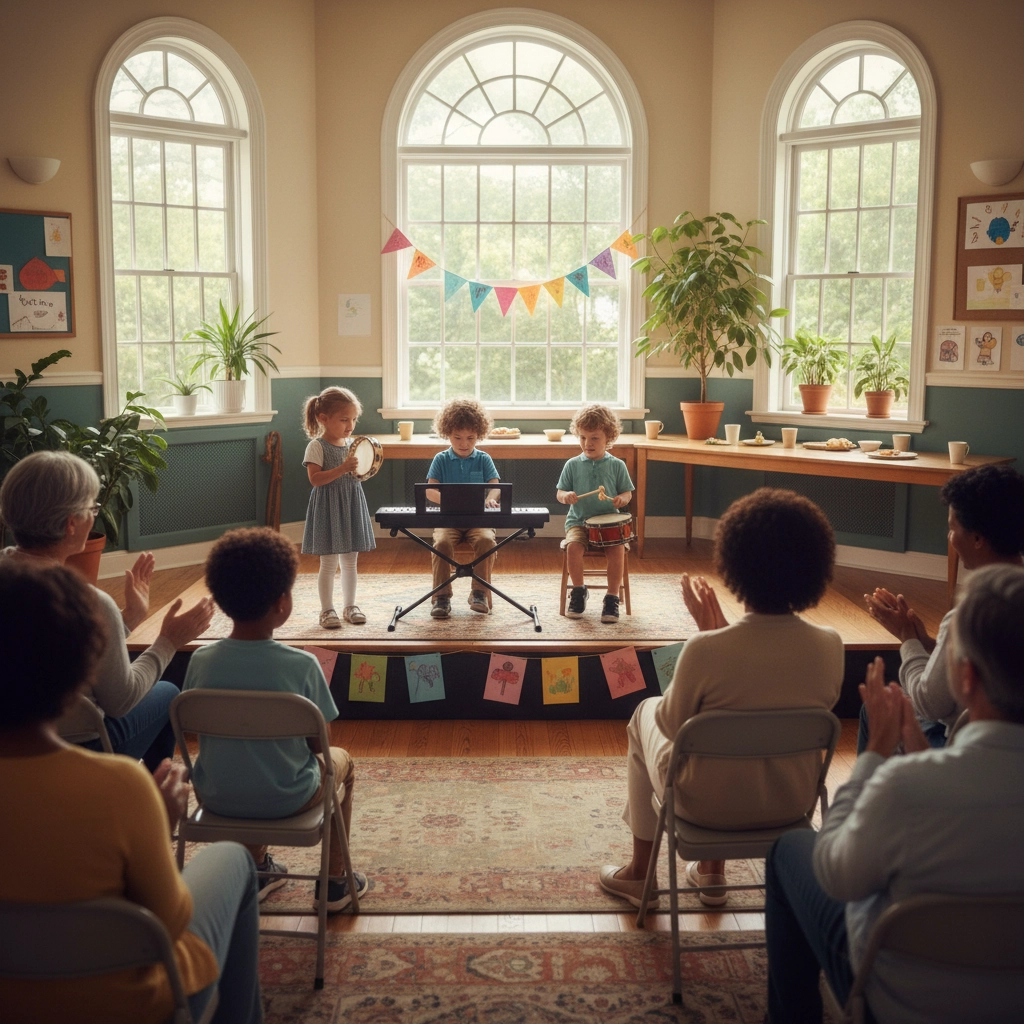
Making the Right Choice for Your Child
So what's the verdict? While soccer, art, and dance all have their place, music education offers the most comprehensive confidence-building experience for young children. It's the only activity that simultaneously develops cognitive, emotional, social, and performance confidence while creating lasting neurological advantages.
The choice isn't really between activities: it's between giving your child every possible advantage or wondering "what if?" years from now.
Your Carroll Gardens neighbors are already discovering this secret. The question is: will you join them, or will you let another week pass while your child's optimal learning window gets smaller?
Ready to give your child the confidence advantage that lasts a lifetime? With Musicolor Method NYC, the sooner they start, the bigger the benefit. And in a neighborhood like ours, can you really afford to wait?
Ready to give your child the confidence boost they deserve? Book a free consultation today and discover how easy and fun music lessons can be—right from your home!
Are You Ready to Embrace Holistic Growth for Your Little One?
Schedule a Call Now and we'll learn more about your child, their learning styles, preferences and schedule to match you with the perfect in-home music teacher.
Parents Share Their Stories
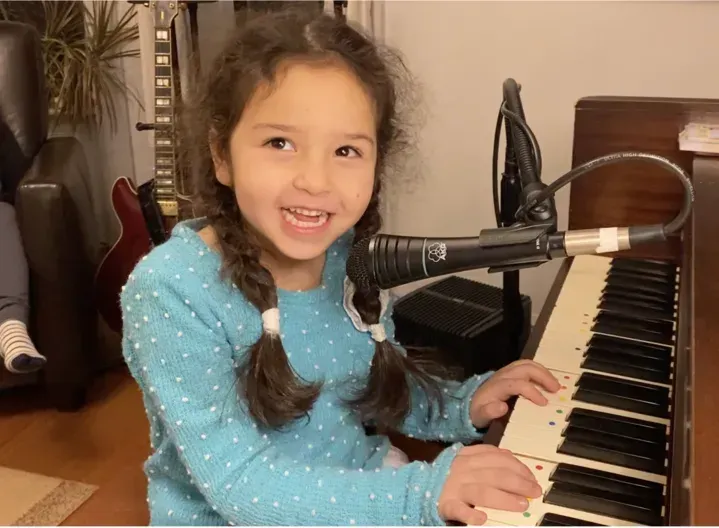
"My daughter has been a student at Park Slope Music Lessons for years and it's been a fabulous experience. Piano has helped provide her with a different approach to thinking and learning and she truly enjoys it. The instructors are fantastic and do an amazing job connecting with each student and tailoring their approach to their individual needs. Thank you so much!"
- Kevin DeNoia
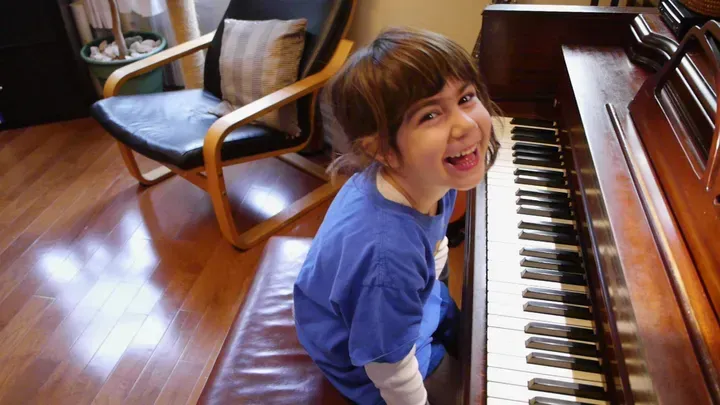
"My daughter has never sought to play music professionally, so her continued commitment to her weekly lessons for 12+ years (even with her busy high school schedule), is a testament to how much she truly enjoys being part of the Park Slope Music Lessons family!"
- Caroline Lee
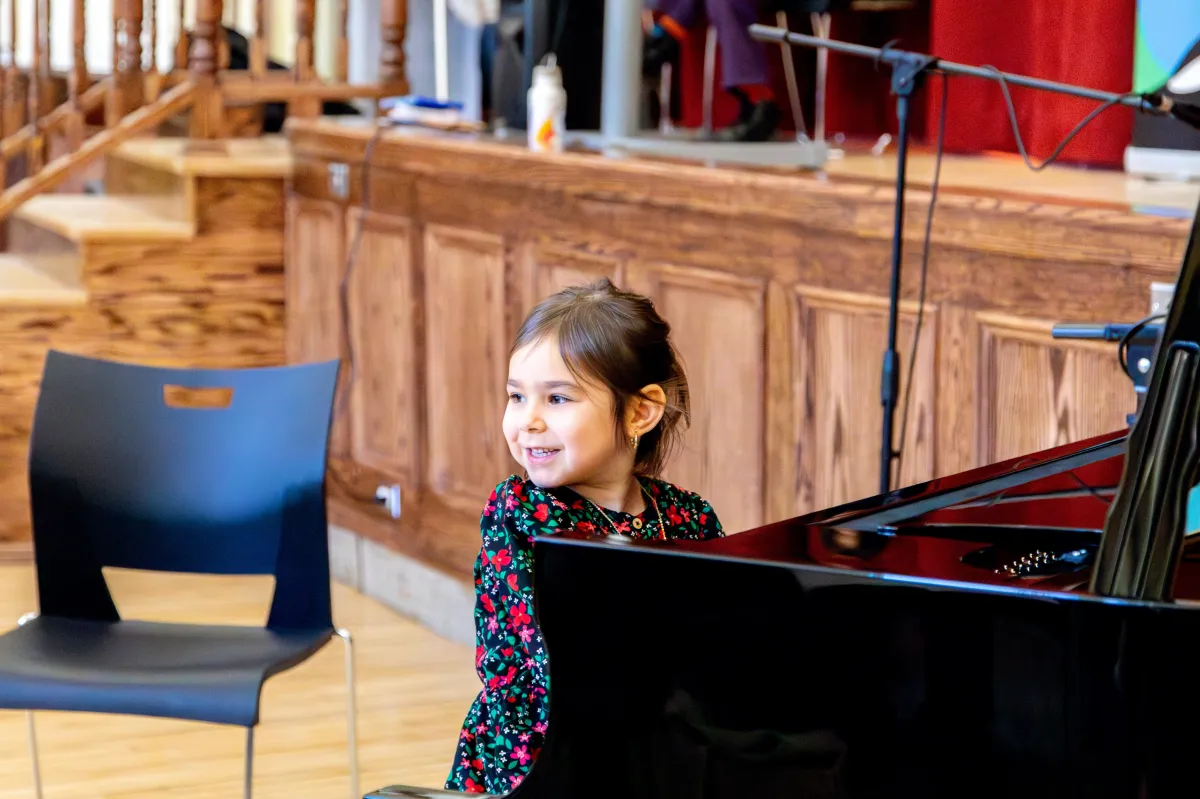
"My son started piano lessons with Andrew & co. when he was 4 1/2. The Musicolor Method really made learning to read and play music possible for home at that age."
- Sarah Kornbluth
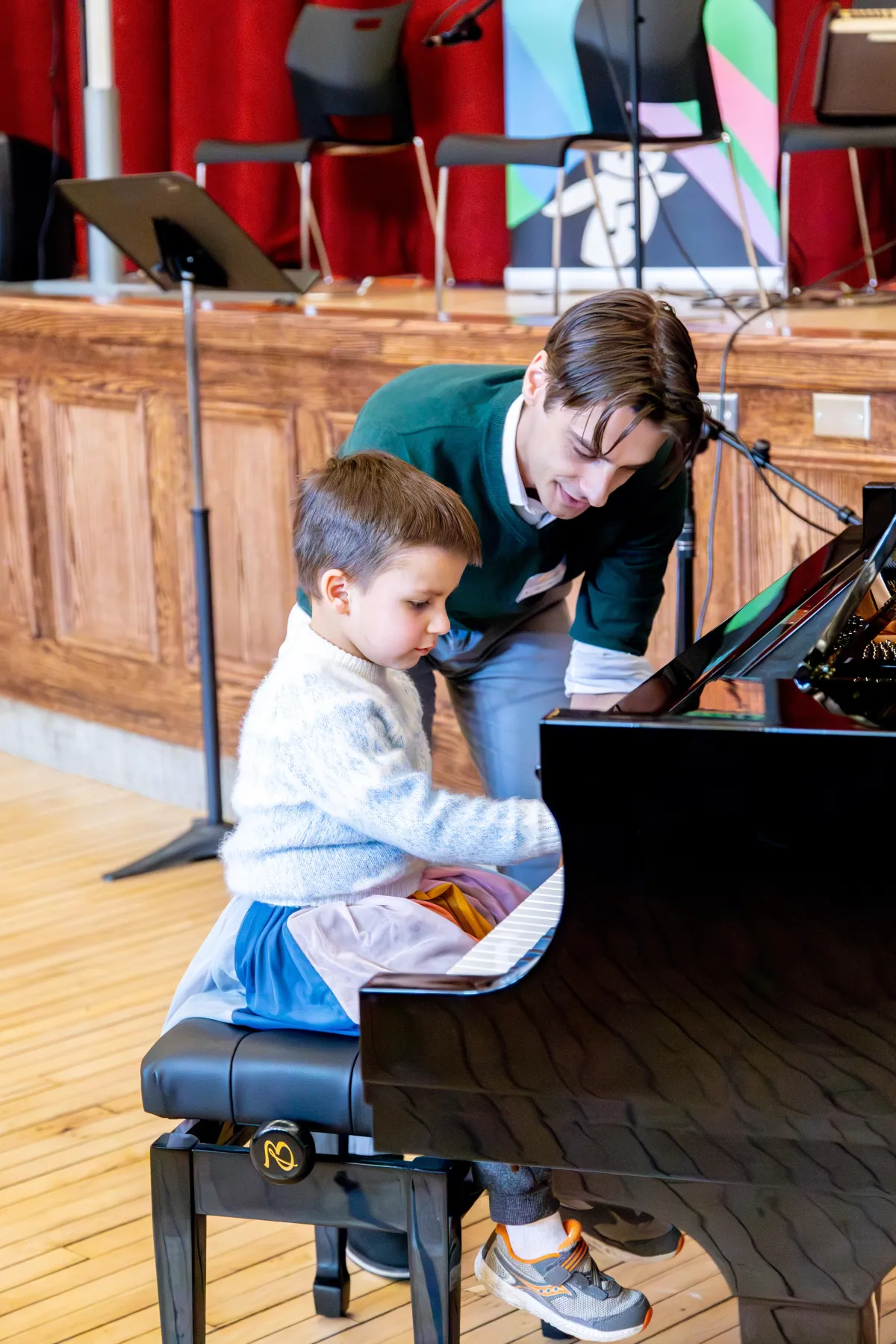
“…What an excellent music teacher Chris is. He has been teaching my daughter…for the past ten months or so, and I am regularly struck by how well he communicates to her (she is 7) and explains music concepts and ideas, and demonstrates and guides her. Chris does so in a way which she clearly finds engaging and motivating. He is also very patient, kind and gentle with her.”
- Julia O.
STILL NOT SURE?
Frequently Asked Questions
Question 1: Will my child eventually learn to read music properly?
Yes. Reading is introduced once your child feels confident and connected to the instrument. By that point, learning to read feels exciting instead of stressful.
Question 2: Which instrument should my child learn first?
We generally recommend that children under the age of 8 start with at least 6 months of piano/keyboard. Not only is creating sound on a keyboard far simpler than it is on other instruments, it's linear and intuitive layout allows for quickly building a foundational understanding of music theory. This makes transferring to other instruments much quicker and more enjoyable.
Question 3: What instruments do you teach?
PIANO , VOICE , GUITAR , BASS , UKULELE , FLUTE , SAXOPHONE , CLARINET , TRUMPET , TROMBONE , FLUGELHORN , DRUMS/PERCUSSION , SONGWRITING and more.
Question 4: What is the cost of music lessons?
Our special trial lesson package includes two 30-minute trial lessons spaced a week apart at $185 - books and materials are included. After that, we prorate our annual tuition, which is $3240 for 32 lessons and 2 recital opportunities. There is a monthly payment plan available. The semester runs September 8th, 2025 - June 26th, 2026, and mostly follows the NYC Public School holiday schedule with a few additions. Special discounts are available, which we'll discuss on a free consultation call. You can book a call here.
See details on our parents' information page, Pontus Palace.
Question 5: What age is best to start music lessons?
We accept students 4+ years in age - on some occasions, as young as 3 1/2. We ask that all new students be capable of the following:
1. Can your child write their name legibly?
2. Can your child count to 10?
3. Can your child sit and focus on one activity for at least 5 minutes?
4. Are your child's fine motor skills developed enough to play a key with each of their 5 fingers?
Question 6: Where are you located?
We do not have a brick and mortar location. We send amazing teachers to your home in Park Slope and surrounding neighborhoods.
Question 7: Do you have recitals?
We hold 2 recitals every year at the PS 321 Lower School Auditorium on President Street between 5th and 6th Avenues in Park Slope. This year, our recitals will take place on January 25th, 2026, and June 6th, 2026.
Question 8: What if we miss a lesson?
Each student is allowed 2 makeup credits per semester. We ask that parents communicate directly with their teacher to reschedule any missed lessons. There are no refunds for missed lessons.
Question 9: Do you offer remote online video lessons?
Yes. All of our teachers are able to provide excellent instruction via Zoom no matter where you are located.
Question 10: Do you offer group or sibling discounts?
Yes - we will discuss any potential discounts in your consultation call.
Question 11: Do you accept special needs students?
Yes. Because of our adaptive and inclusive curriculum, the Musicolor Method, we have been able to successfully work with many children with special needs, including Autism Spectrum Disorder, Attention Deficit Hyperactivity Disorder, Dyslexia, and slow learners. Learn more here.
Question 12: Do you teach adults?
Yes, we teach students of all ages!
Question 13: Do you also teach traditional note reading?
Absolutely - it is the goal of the Musicolor Method to teach your child traditional notation in the best way possible. The Musicolor Method serves as educational scaffolding. It builds instant excitement, enthusiasm and confidence to keep going when things get more complicated. Learning to read music does not happen overnight, and the Musicolor Method works to keep a child motivated on that journey.
Question 14: Do you have an early childhood music class for toddlers?
Yes we do - our Penguin Pals class is exactly that. Learn more and sign up here.

Question 15: Do you offer any scholarships or financial aid?
Yes. Our music program helps young people activate life skills through music. We would like to make it as accessible as possible, and have limited scholarships available each year for partially subsidized lessons. Please apply here.

COMPANY
Directory
FOLLOW US
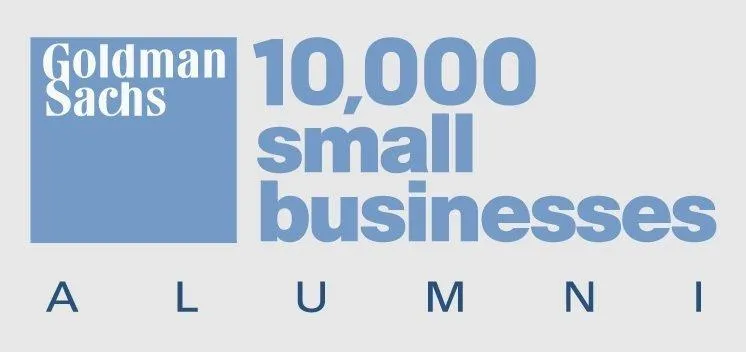
Family-owned and minority-owned business proudly led by a Goldman Sachs 10,000 Small Businesses alumnus
© 2007 - 2025 - 300 Monks, LLC, dba as Musicolor Method. All rights reserved. Unauthorized use prohibited.
Privacy Policy


